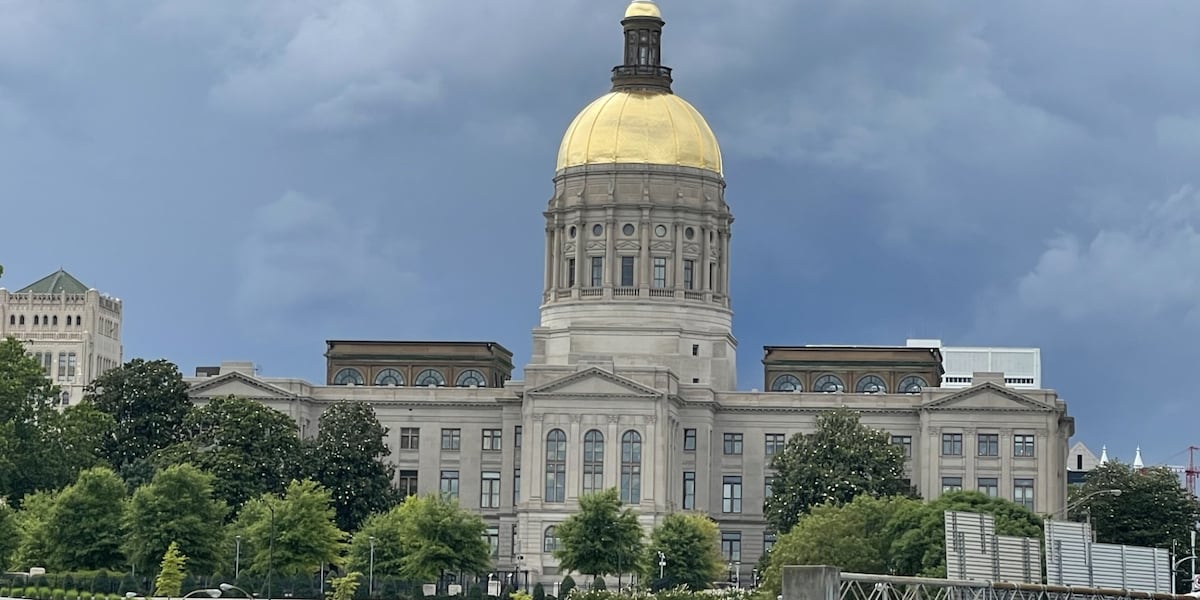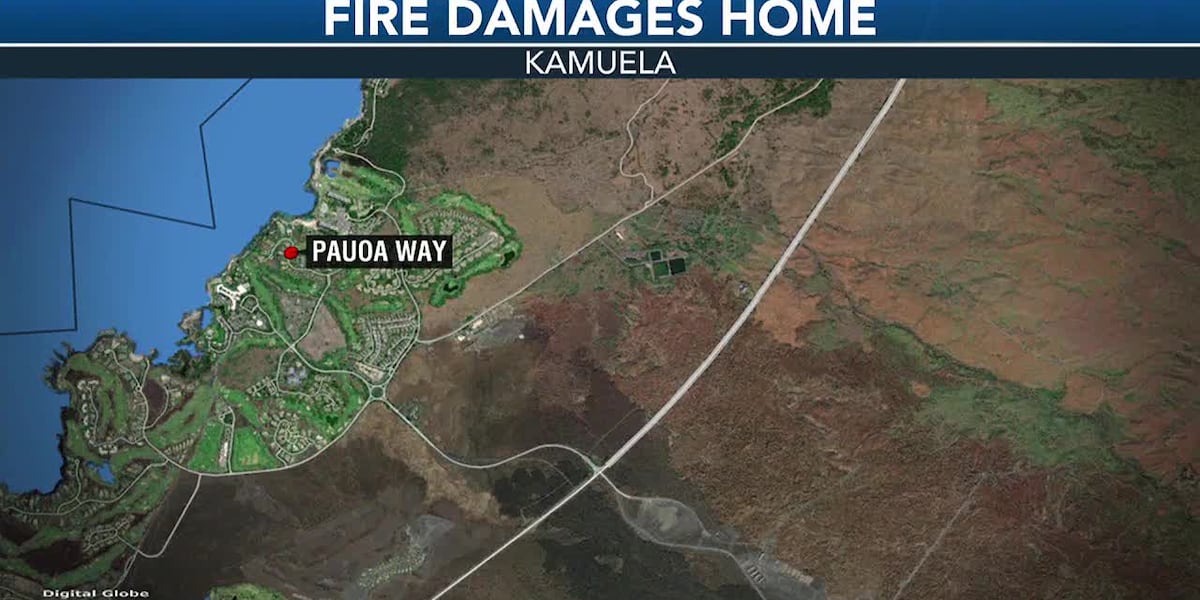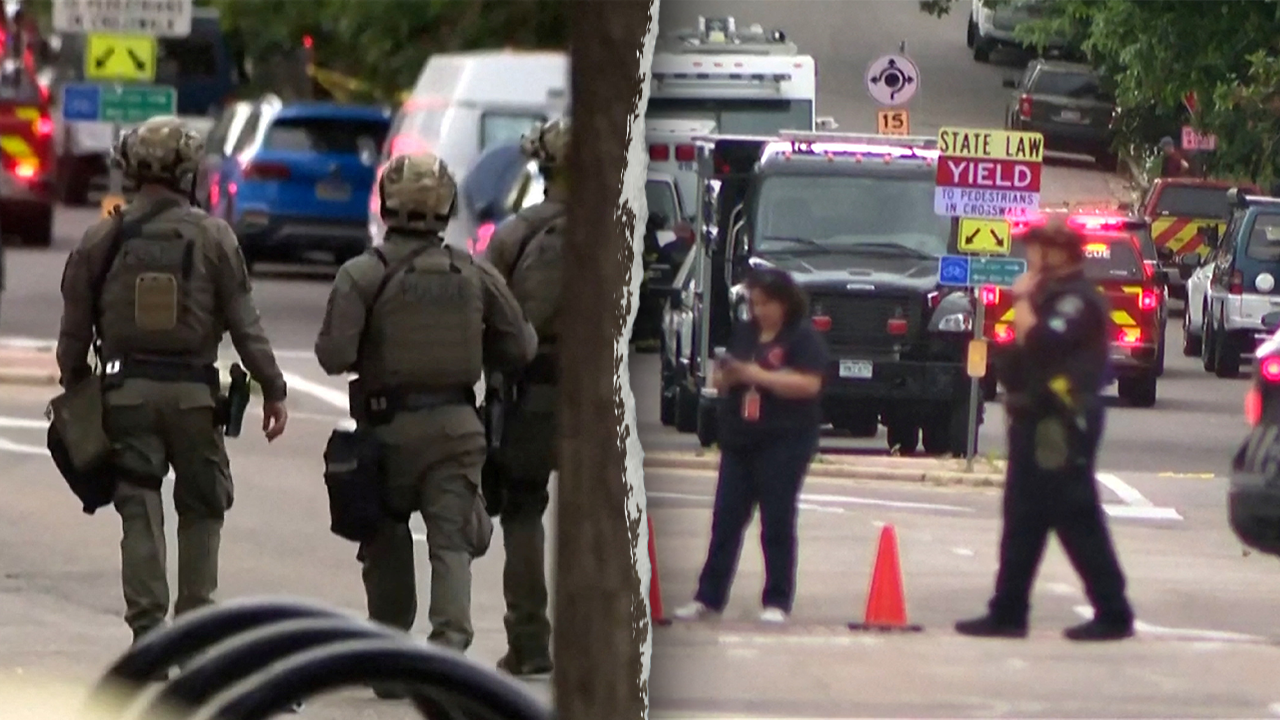Pennsylvania
A Pennsylvania Community Wins a Reprieve on Toxic Fracking Wastewater – Inside Climate News

A decade ago, Pennsylvania General Energy first applied for state permits to convert an old natural gas well in tiny, rural Grant Township, Pennsylvania, to take wastewater from nearby fracking operations. The action raised fear among the town’s 700 residents that their drinking water would be tainted with toxic fracking chemicals, and led to its assertion of local authority to control oil and gas development through a home-rule charter.
A cascade of lawsuits by the company, the state and the town followed, leading to a court ruling—now on appeal before the Pennsylvania Supreme Court—that the charter was unconstitutional.
But in early May, the community about 80 miles east of Pittsburgh won a victory in the long-running case when Pennsylvania General Energy, an oil and gas production company, said it now plans to plug the well instead of converting it to hold wastewater because of a geological problem that could result in natural gas leaking into underground sources where every household in the township gets its drinking water.
The Yanity well, named for a local family that leased some of its land to the energy company, had been found by state inspectors to have an “annulus”—a space around the bore hole where gas can escape—and the company asked the Pennsylvania Department of Environmental Protection to approve a plugging technique that would stop the gas spreading beyond the formation where it was found.
“This method will in PGE’s opinion … provide significant protection to be sure gas cannot migrate into the water table once the well is fully plugged and abandoned,” the company wrote in an application to the DEP on May 1. It said it would begin plugging the well on June 1.
If the company goes ahead with plugging the well, it will be a cause for celebration, said Stacy Long, chair of the town’s board of supervisors, who has played a prominent role in the fight against the “injection” well. But she is holding back until the work is done.
“We have to see it to believe it,” she said. “This is 10 years, and everyone told us, ‘You can’t fight the gas company.’ We did anyway, and now we have this plugging, and if it happens, I’m going to say whoopee. But I’m not getting excited until it happens.”
Regardless of the outcome, Long said she will continue to educate the public on threats to water as part of a community group called the East Run Hellbenders, which adopted the name of an imperiled local salamander that needs clean water to survive. The animal, officially designated as an endangered species in some parts of the central and eastern United States, was adopted as Pennsylvania’s state amphibian in 2019.
Long said it’s not clear whether the well-plugging plan was really driven by the geological problems, or by the town’s long campaign against it. But she argued that the decision to end plans to site an injection well for frack waste in an area where all residents depend on private water wells vindicates the town’s opposition.
“We aren’t sure why they are plugging a well, but nobody plugs a well that’s working,” she said.
If the plugging plan goes ahead, it will add to the earlier closure of about half a dozen PGE gas wells in the township, leaving the company with no further business there, Long said. Given that, it’s unclear why the company is continuing to pursue its federal court case against the town, she said.
In that case, filed in 2020, PGE called the charter “unconstitutional and unlawful.” It said the document prevented it from operating or selling the injection well, and exposed it to criminal penalties and civil actions.
The DEP also sued the township, saying in a 2017 state court suit that the home rule charter unlawfully prohibits the agency from issuing oil and gas permits, and threatens to impose fines on any state or federal agency that violates the charter.
DEP spokesman Neil Shader said the agency’s suit, now before the state Supreme Court on appeal by the Community Environmental Legal Defense Fund (CELDF) representing Grant Township, is based on the argument that the township’s home-rule charter is too broad to be lawful.
“The challenge to Grant Township’s law is not based on any one well, but on the transport and disposal of all oil and gas wastes within the township,” Shader said. “DEP is not opposed to local governance regarding environmental concerns through lawful means, such as zoning-related laws (which DEP has argued before the Commonwealth Court, can include total bans), but that Grant’s method here is unlawful because of the breadth of their law.”
Now, the new decision to plug the well is important because it would remove a potential source of water contamination from the community. It also suggests that fighting the oil and gas industry as well as state and federal agencies may not be the futile exercise that some would argue, said Chad Nicholson, a Pennsylvania community organizer with the Community Environmental Legal Defense Fund, a public-interest law firm and advocacy group that has represented Grant Township pro bono throughout its fight with the industry and the state.
Even though residents didn’t have the science to prove that the injection well would represent a threat to their water, they knew intuitively that it did, Nicholson said, adding that they have now been vindicated by the company’s description of the underground conditions.
“Did Grant Township know? No, they don’t have experts, scientists, geologists but they knew that this was a bad idea, and that this would potentially contaminate their water supply,” he said. “Now we have the proof that this was a leaking well with stuff that could get into the water table.”
PGE’s apparent retreat on the well also signals to other towns—some of which CELDF has worked with—that the assertion of local power may eventually succeed against apparently overwhelming odds, he said.
“It has big implications for the communities, and that’s why this case has gone on for so long,” Nicholson said. “It hasn’t just only been about PGE’s injection well. It’s been about the industry understanding that if there’s an example or a model of communities resisting that actually works, and forces industry to go away, hopefully other communities will pick that up.”
Around 80 Pennsylvania municipalities have home-rule charters which were legalized by an amendment to the state constitution in the 1920s. The cities, boroughs and townships can assert home rule on any matter that is not specifically exempted by state law.
Now, CELDF is hoping to prevail in its state Supreme Court appeal of the lower court ruling that struck down Grant’s home-rule charter.
“If we win in either or both of those, it has huge implications for the state of Pennsylvania, and for communities that want to protect their environment,” Nicholson said. “If you want to pass a local law that asserts rights of the community, rights of nature, and that bans harmful activities, then that is a major shift.
“What most communities who have tried something like this have found is that you are going to get sued. You might get sued by the corporation; you might get sued by the state agency. You are being forced into a box that says ‘you don’t have the authority’ and that the agencies have the authority behind them to do the activity,” he said.
Other Pennsylvania communities that have asserted local control over oil and gas after working with CELDF include Pittsburgh, whose city council in 2010 banned natural gas drilling within city limits, and Highland Township in Elk County, which adopted a community bill of rights in 2013 in response to plans for an injection well by Seneca Resources, an oil and gas company.
PGE did not respond to a request for comment on its injection-well plans. But Kevin Moody, general counsel for the Pennsylvania Independent Oil and Gas Association, said municipalities such as Grant Township may not assert self-government that claims to pre-empt state or federal authority. In 2014, the trade group intervened in a suit brought by PGE challenging the township’s authority to adopt a community bill of rights, a precursor to the home-rule charter.
“Our system of federal, state and local governments does not authorize even home rule communities to enact laws that are superior to the U.S. and Pennsylvania constitutions and to state laws of general applicability, as well as other limitations stated in the home rule law,” Moody wrote in an email. “CELDF is pushing the opposite position, going so far as to describe the township’s home rule charter as a constitution, putting it on par with the U.S. and Pennsylvania constitutions.”
The charter, passed by the town in 2015, asserts the right to make its own rules, and to defend natural systems against threats such as that from the oil and gas industry.
“All residents of Grant Township, along with natural communities and ecosystems within the Township, possess the right to clean air, water and soil, which shall include the right to be free from activities which threaten scenic, historic, and aesthetic values, including from the depositing of waste from oil and gas extraction,” the document says.
It adds that it will be “unlawful” for any government or corporation to dispose of oil and gas waste in the town.
Rich Raiders, a Pennsylvania land-use attorney who is not connected to the Grant Township cases, said home-rule charters can influence the siting of oil and gas facilities but such local policies are just one factor used by the DEP in deciding whether to issue a permit.
Towns seeking to influence a permit decision should participate in the DEP’s public process, and if that does not settle their concerns, they can take the matter to the Environmental Hearing Board, a quasi-judicial state panel that hears disputes involving the DEP, Raiders said.
“The way the local government speaks is to enact appropriate ordinances that reflect their local community standards,” Raiders wrote in an email. “If they don’t, the decision falls to DEP and DEP alone. If they do, they at least get a seat at the table and the right to challenge permits at the Environmental Hearing Board when they are potentially aggrieved by a permitting action. It’s not quite home-court advantage, but at least it’s the chance to be heard.”
Local efforts to control oil and gas development were recognized by the Pennsylvania Supreme Court in 2013 when it struck down part of Act 13, a state law passed the year before, that allowed the state to preempt municipal zoning rights over the industry.
Keep Environmental Journalism Alive
ICN provides award-winning climate coverage free of charge and advertising. We rely on donations from readers like you to keep going.
Donate Now
For Stacy Long, the fight against an injection well has been motivated by the complete dependence for the mostly elderly local population—now down to about 620 after Covid killed some, Long said—on private water wells that are exposed to any underground impurities.
“There’s nothing in Grant Township; there are no businesses, no opera houses, no traffic lights. It is peace and quiet—woods and fields and farms and streams and a creek,” she said. “We’re ordinary people; we have a lot to lose.” When the gas wells were operating, some people had problems with their water but that was dealt with individually rather than by the township, she said.
Long said she has been trying to prevent Grant Township becoming the next Dimock, the northeast Pennsylvania town whose water was contaminated by gas drilling starting in the mid-2000s, and which became famous for its flammable tap water.
“The normal way things go, the harm gets committed, and then your only chance is to sue after the fact,” she said.
But trying to stop the harm in the first place would be a way of making sure local rights don’t get trampled by industry and government. “Maybe we’re not as dumb as the gas industry thought we were,” she said.

Pennsylvania
Pennsylvania Lottery Powerball, Pick 2 Day results for June 9, 2025
The Pennsylvania Lottery offers several draw games for those aiming to win big. Here’s a look at Monday, June 9, 2025 results for each game:
Winning Powerball numbers from June 9 drawing
30-33-40-43-52, Powerball: 25, Power Play: 4
Check Powerball payouts and previous drawings here.
Winning Pick 2 numbers from June 9 drawing
Day: 7-7, Wild: 8
Evening: 4-9, Wild: 5
Check Pick 2 payouts and previous drawings here.
Winning Pick 3 numbers from June 9 drawing
Day: 1-4-6, Wild: 8
Evening: 2-7-5, Wild: 5
Check Pick 3 payouts and previous drawings here.
Winning Pick 4 numbers from June 9 drawing
Day: 0-5-1-1, Wild: 8
Evening: 3-9-5-4, Wild: 5
Check Pick 4 payouts and previous drawings here.
Winning Pick 5 numbers from June 9 drawing
Day: 0-4-5-7-1, Wild: 8
Evening: 1-8-4-4-0, Wild: 5
Check Pick 5 payouts and previous drawings here.
Winning Cash4Life numbers from June 9 drawing
06-08-28-57-60, Cash Ball: 03
Check Cash4Life payouts and previous drawings here.
Winning Cash 5 numbers from June 9 drawing
04-07-17-27-36
Check Cash 5 payouts and previous drawings here.
Winning Treasure Hunt numbers from June 9 drawing
11-13-22-25-29
Check Treasure Hunt payouts and previous drawings here.
Winning Match 6 Lotto numbers from June 9 drawing
10-19-22-33-43-47
Check Match 6 Lotto payouts and previous drawings here.
Winning Powerball Double Play numbers from June 9 drawing
01-07-24-50-59, Powerball: 11
Feeling lucky? Explore the latest lottery news & results
Are you a winner? Here’s how to claim your lottery prize
- Sign the Ticket: Ensure your ticket has your signature, name, address and phone number on the back.
- Prizes up to $600: Claim at any PA Lottery retailer or by mail: Pennsylvania Lottery, ATTN: CLAIMS, PO BOX 8671, Harrisburg, PA 17105.
- Prizes from $600 to $2,500: Use a Claim Form to claim at a retailer or by mail: Pennsylvania Lottery, ATTN: CLAIMS, PO BOX 8671, Harrisburg, PA 17105.
- Prizes over $2,500: Mail your signed ticket with a Claim Form or in person at a Lottery Area Office (9 a.m. to 4 p.m.).
Lottery Headquarters is currently not open to the public. Visit the PA Lottery website for other office locations near you.
When are the Pennsylvania Lottery drawings held?
- Powerball: 10:59 p.m. Monday, Wednesday and Saturday.
- Mega Millions: 11 p.m. Tuesday and Friday.
- Pick 2, 3, 4, 5: 1:35 p.m. and 6:59 p.m. daily.
- Cash4Life: 9 p.m. daily.
- Cash 5: 6:59 p.m. daily.
- Treasure Hunt: 1:35 p.m. daily.
- Match 6 Lotto: 6:59 p.m. Monday and Thursday.
- Powerball Double Play: 10:59 p.m. Monday, Wednesday, Saturday.
This results page was generated automatically using information from TinBu and a template written and reviewed by a Pennsylvania editor. You can send feedback using this form.
Pennsylvania
Legislative roundup: DHS highlights vital role of Medicaid in supporting economy

Pennsylvania Department of Human Services (DHS) Secretary Dr. Val Arkoosh, Pennsylvania Insurance Commissioner Michael Humphreys and Pennie Executive Director Devon Trolley this week discussed the importance of Medicaid in providing health care coverage to millions of Pennsylvanians amid proposed federal cuts to the program — which would kick more than 300,000 Pennsylvanians off their health insurance.
More than three million Pennsylvanians – or 1 in 4 people – get their health care coverage through Medicaid, also known as Medical Assistance in Pennsylvania. With this coverage, Pennsylvanians can see a doctor, fill prescriptions and access preventive services like health screenings. This coverage is vital to helping people stay healthy, take care of their families and contribute to our economy.
“All of us know someone — whether its ourselves, a friend, loved one, or a neighbor — who Medicaid has helped,” Arkoosh said. “But no matter how you personally get your health care coverage, Medicaid is vital to protecting the health of your community. Congressional Republicans’ proposed cuts to Medicaid would be devastating not only for those who would lose their health coverage, but for all of us who would face the real life consequences of crowded emergency departments, increases in the cost of health insurance, and the catastrophic effects on economies and health systems in rural areas.”
More than 300,000 Pennsylvanians will lose access to Medicaid due to:
• New eligibility requirements.
• Increased bureaucratic paperwork because of proposed six-month re-determinations, whether eligibility is determined every six months instead of every year.
• New work reporting requirements, which will require more staff and new IT infrastructure.
The bill also proposes other federal cuts that will further destabilize our health care infrastructure and threaten the closure of hospitals, especially in our rural communities. Half of Pennsylvania’s 65 hospitals serving rural communities operate at a deficit, struggling to survive, and relying significantly on Medicaid to cover the cost of providing care.
“The Congressional Republicans’ bill would have devastating consequences for Pennsylvanians. From unaffordable health care costs to a higher number of uninsured individuals seeking uncompensated care through our hospital systems, this bill should concern every one of us.” said Pennsylvania Insurance Commissioner Michael Humphreys.
As of today, Congressional Republicans’ bill needs to pass the U.S. Senate and be signed into law. There are no changes to Medicaid.
Lawrence confirmed as Pa.’s Consumer Advocate
Attorney General Dave Sunday this week announced that the Pennsylvania Senate unanimously confirmed the nomination of Darryl Lawrence to serve as Pennsylvania’s Consumer Advocate.
Lawrence has been serving as interim Consumer Advocate since Feb. 4, where he has been representing Commonwealth consumers in public utility service quality and pricing matters. Lawrence has been with the Office of Consumer Advocate since June 2005 and previously held the position of Senior Assistant Consumer Advocate for the office.
“I am pleased that the Senate has confirmed my appointment of Darryl Lawrence as Pennsylvania’s Consumer Advocate, and am confident that Darryl will serve Pennsylvanians well in that capacity,” Sunday said. “Darryl dedicated his career to advocating on behalf of Pennsylvanians who may not have a voice in the regulatory, judicial, and legislative processes attached to public utilities. He has proven himself as an experienced, tough, fair, and honest advocate.”
The Pennsylvania Office of Consumer Advocate was established by the General Assembly in 1976 to serve as the legal representative for all utility ratepayers in the Commonwealth.
The Pennsylvania Office of Consumer Advocate is housed in the Office of Attorney General, but functions independently. The Office of Consumer Advocate has discretion and authority to intervene in litigation on its own behalf, and has actively participated in matters before the Pennsylvania Utility Commission and in state and federal courts.
Public utilities include electric, natural gas, water, wastewater, and telecom companies under either Pennsylvania Public Utility Commission or Federal Energy Regulatory Commission jurisdiction.
PUC Chairman confirmed for second term
The Pennsylvania Public Utility Commission this week thanked the State Senate for unanimously confirming the reappointment of Chairman Stephen M. DeFrank to a second term as Commissioner and expressed appreciation to Governor Josh Shapiro for submitting the nomination.
Chairman DeFrank was confirmed on June 4, by the Senate and will continue serving as chairman of the commission. His new term extends through April 1, 2030.
“I’m honored by the confidence shown by Governor Shapiro and the Senate,” DeFrank said. “At a time of fast-moving change across our energy and utility systems — from rising demand and extreme weather to cyber-security and infrastructure modernization — the Commission’s mission remains clear: ensuring safe, reliable, and affordable service for every Pennsylvanian.”
DeFrank was sworn in immediately following his confirmation.
NIL legislation to protect student athletes to be introduced
Pennsylvania House Republican Leader Jesse Topper, R-Bedford/Fulton, and Rep. Perry Stambaugh, R-Perry/Juniata, this week announced they will soon introduce legislation to provide protections for student-athletes receiving compensation for the use their name, image and likeness (NIL).
While a case wending through federal courts will likely expand the NIL universe, no state legal structure exists. This leaves compensated student-athletes vulnerable to poor financial decisions and without recourse if they should become injured during their career.
“NIL is one of the most dynamic and evolving spaces in the national sports market that has become a life-changing positive for many student-athletes and families,” Topper said. “As the NIL landscape continues to advance at the federal level, it is appropriate for state legal supplements to ensure student-athletes are protected at a vulnerable time in their lives.”
“Our legislation will ensure that students have the financial education and protection available to safeguard their NIL assets while giving them the opportunity to save NIL earnings should they become injured or otherwise incapable of pursuing their athletic career.”
According to the recently filed co-sponsorship memo in advance of the introduction of formal legislation, the Topper-Stambaugh NIL proposal would require institutions of higher education to offer all student-athletes the option to place a portion of their revenue sharing or NIL earnings into trust accounts. The institutions may partner with established financial firms experienced in educational trust management to minimize administrative overhead. The accounts would have the following features:
• Funds become fully accessible upon graduation or departure from the university.
• Limited hardship withdrawals permitted with appropriate oversight.
• Professional investment management with transparent reporting.
• Opt-in structure that preserves athlete autonomy while encouraging responsible financial planning.
In addition, colleges and universities would be mandated to provide financial literacy education and resources to their student-athletes.
“In the new ‘Wild, Wild West’ of collegiate athletics that NIL has spawned, helping protect student-athletes from financial harm or exploitation is a solid first step states should take,” Stambaugh said. “As the landscape surrounding NIL evolves, Pennsylvania will be studying changes and enacting policies to ensure our colleges and universities can remain competitive.”
Reach Bill O’Boyle at 570-991-6118 or on Twitter @TLBillOBoyle.
Pennsylvania
Woman critical after being struck by vehicle in Bethlehem, Pennsylvania

Sunday, June 8, 2025 1:28PM
Woman critical after being struck by vehicle in Bethlehem, Pennsylvania
BETHLEHEM, Pennsylvania (WPVI) — A woman is in critical condition after being hit by a car in the Lehigh Valley.
Police say the driver of a Silver Chevy Impala hit the woman as she was walking on the highway near 4th and Emery streets in Bethlehem.
She was taken to St. Luke’s University Hospital for treatment.
The driver of the Chevy remained on the scene.
The incident is under investigation.
Copyright © 2025 WPVI-TV. All Rights Reserved.
-

 Politics1 week ago
Politics1 week agoMichelle Obama facing backlash over claim about women's reproductive health
-

 West3 days ago
West3 days agoBattle over Space Command HQ location heats up as lawmakers press new Air Force secretary
-

 Finance1 week ago
Finance1 week agoHere's what will boost your feeling of financial well-being the most, researchers say
-

 Technology1 week ago
Technology1 week agoWhy do SpaceX rockets keep exploding?
-

 World1 week ago
World1 week agoTwo killed in Russian attacks on Ukraine before possible talks in Turkiye
-

 Kentucky1 week ago
Kentucky1 week agoHow Ole Miss baseball’s pitching options will factor in elimination game vs Western Kentucky
-

 World1 week ago
World1 week agoNcuti Gatwa Bids Doctor Who Farewell as Finale Ends With a Most Surprising Twist — Grade It!
-

 News1 week ago
News1 week agoTrump administration continues to target international students. What to know and what could be next.















